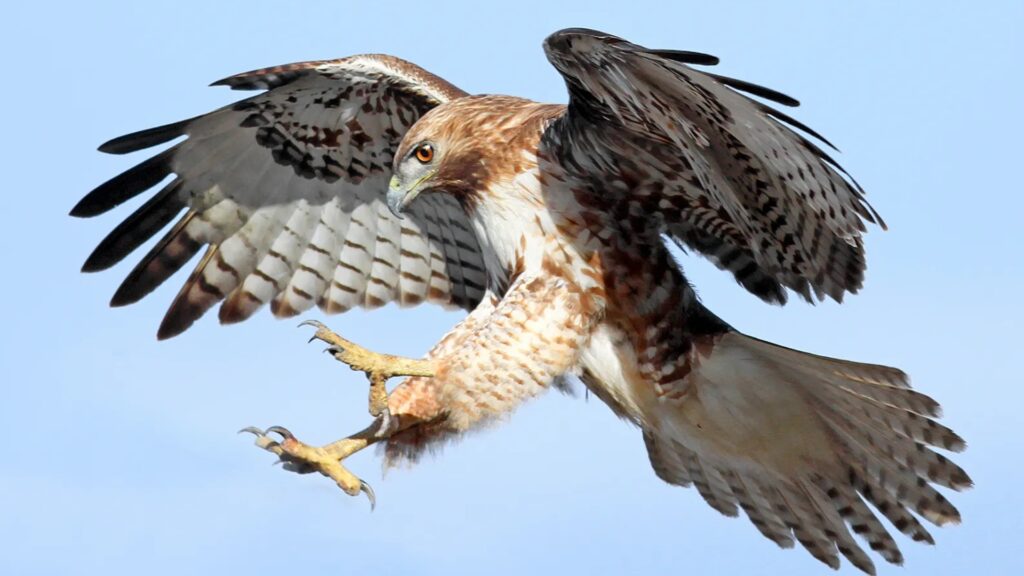
Every winter, bird enthusiasts across North America participate in the annual bird count. This event, which has been ongoing for over 100 years, allows people to observe and record various bird species. It’s a fun way to connect with nature and contribute to important scientific data.
Participation

Participating in the winter bird count not only enhances your bird-watching skills but also contributes valuable data for conservation efforts. Whether you’re a seasoned birder or just starting out, observing these twelve winter birds can enrich your connection with nature.
Northern Cardinal
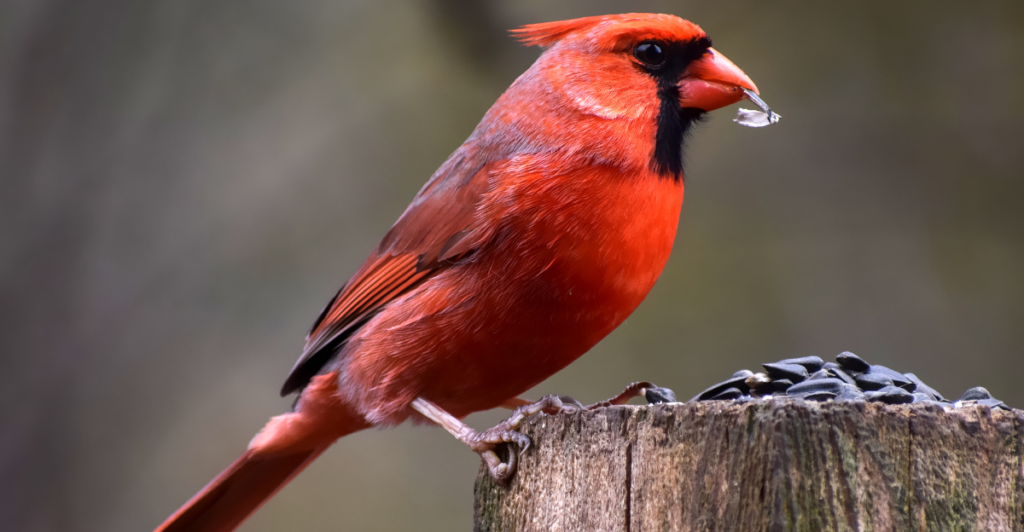
The Northern Cardinal is a striking bird known for its vibrant red plumage. Males are particularly noticeable with their black masks and strong beaks. They are common at feeders and often seen in pairs, making them a favorite among bird watchers during the winter months.
Dark-eyed Junco
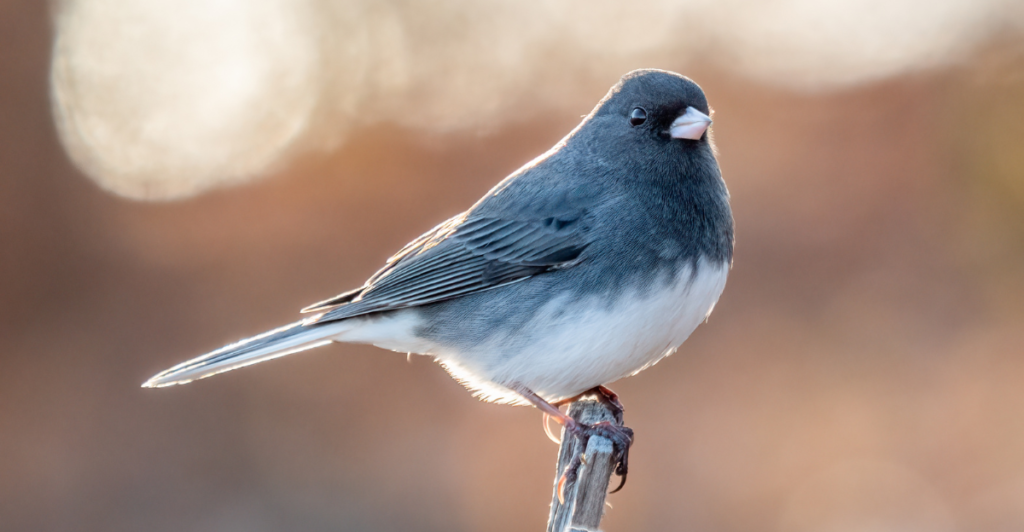
Dark-eyed Juncos are often referred to as “snowbirds.” These small, hardy birds have dark gray heads and white bellies. They are frequently spotted foraging on the ground for seeds, especially in snowy areas, making them a common sight during winter bird counts.
Mourning Dove
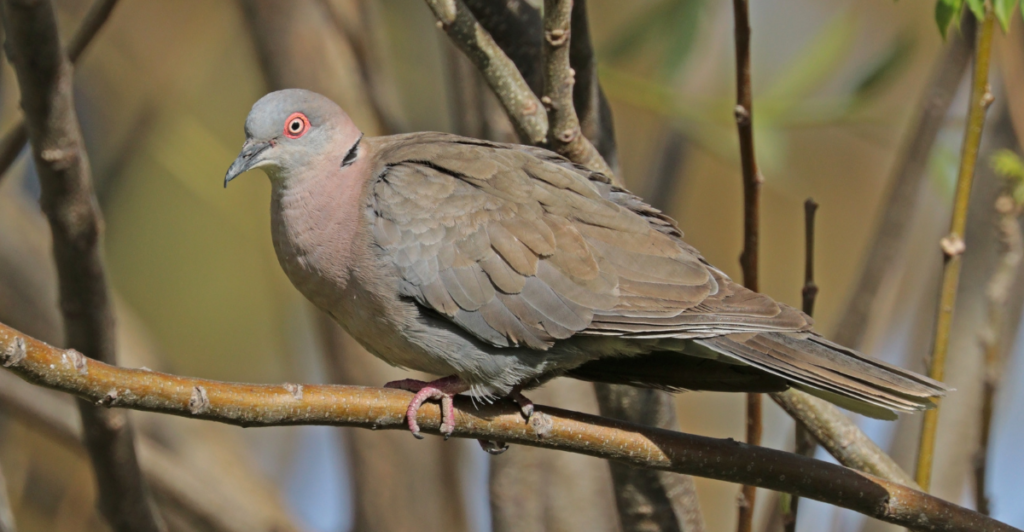
Mourning Doves are gentle birds characterized by their soft cooing sounds. They have long tails and slender bodies, often seen perched on wires or foraging on the ground. Their calm demeanor and adaptability make them a staple in many backyards throughout the winter.
Downy Woodpecker
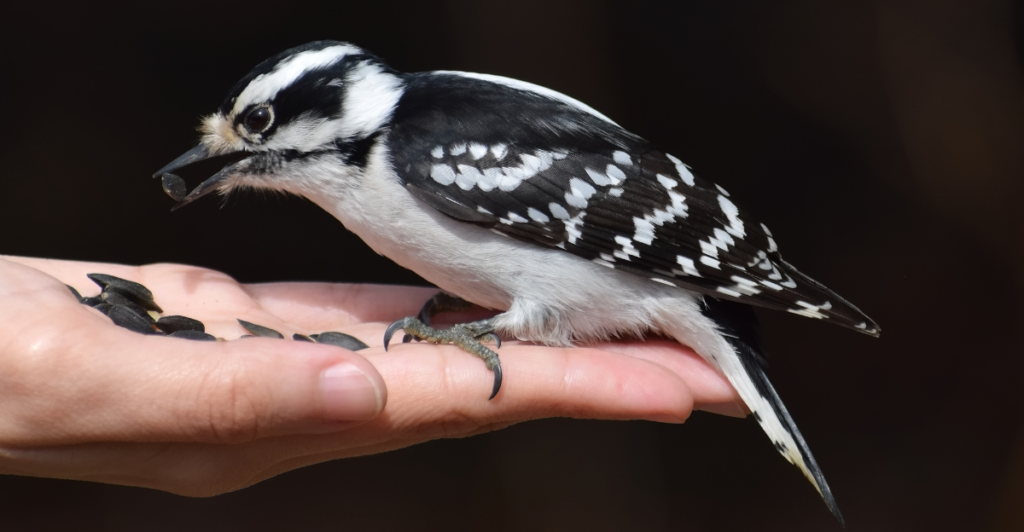
The Downy Woodpecker is the smallest woodpecker in North America. With its black-and-white plumage and a small red patch on males, it can be found clinging to tree trunks and feeding on insects. Their distinctive pecking sound is a telltale sign of their presence.
Black-capped Chickadee
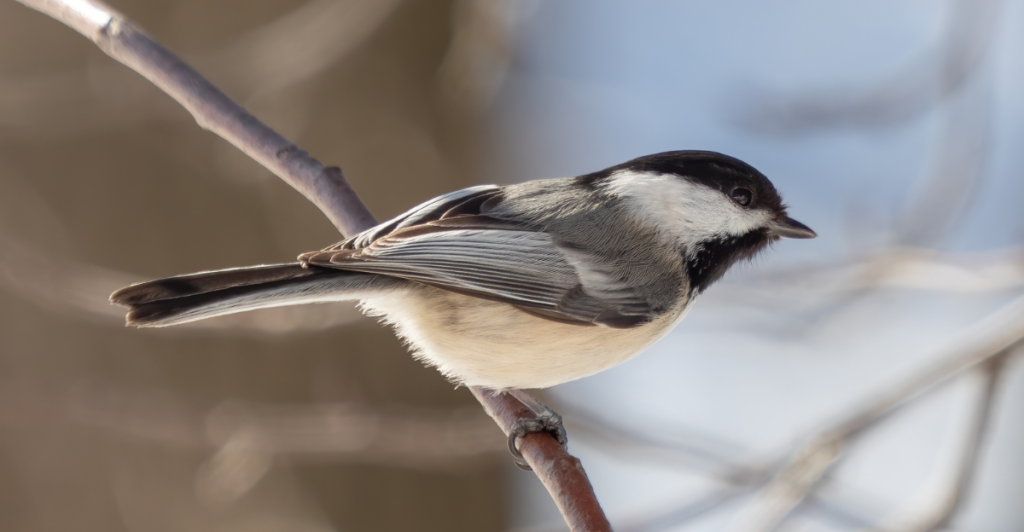
Black-capped Chickadees are friendly little birds known for their distinctive “chick-a-dee-dee-dee” call. They have black caps and white cheeks, making them easy to identify. These curious birds often visit feeders and are known for their boldness around humans.
White-breasted Nuthatch
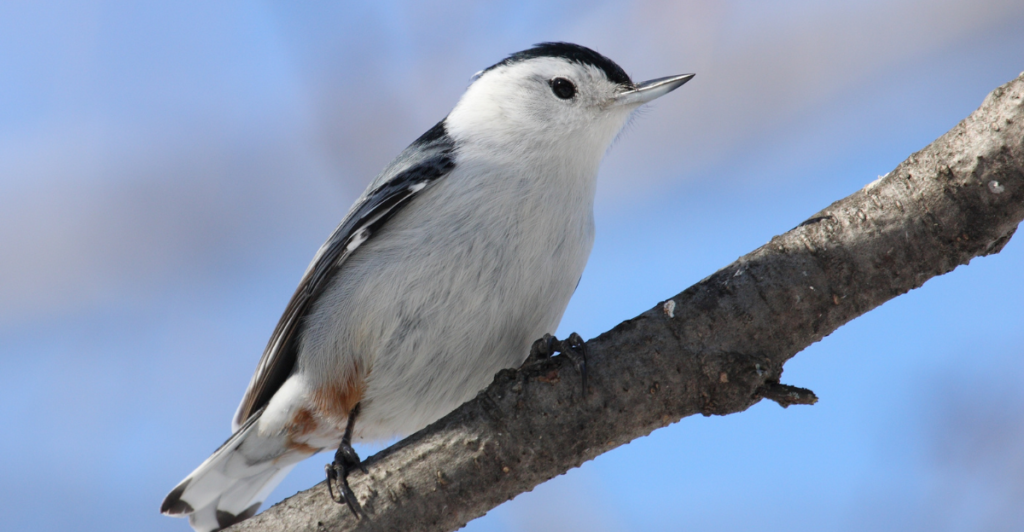
The White-breasted Nuthatch is recognizable by its blue-gray back and white breast. This agile bird often climbs down trees headfirst while searching for insects. They are frequent visitors to feeders and enjoy sunflower seeds and peanuts.
American Goldfinch
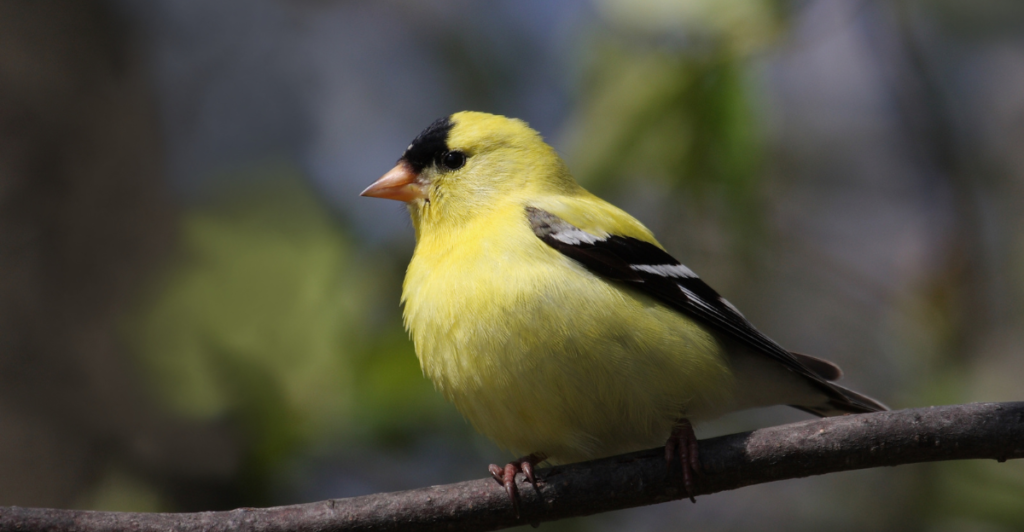
American Goldfinches are bright yellow birds that add color to winter landscapes. Males sport vibrant yellow feathers, while females are more subdued in color. They primarily feed on seeds from plants like sunflowers and thistles, making them a delight to watch at feeders.
House Finch
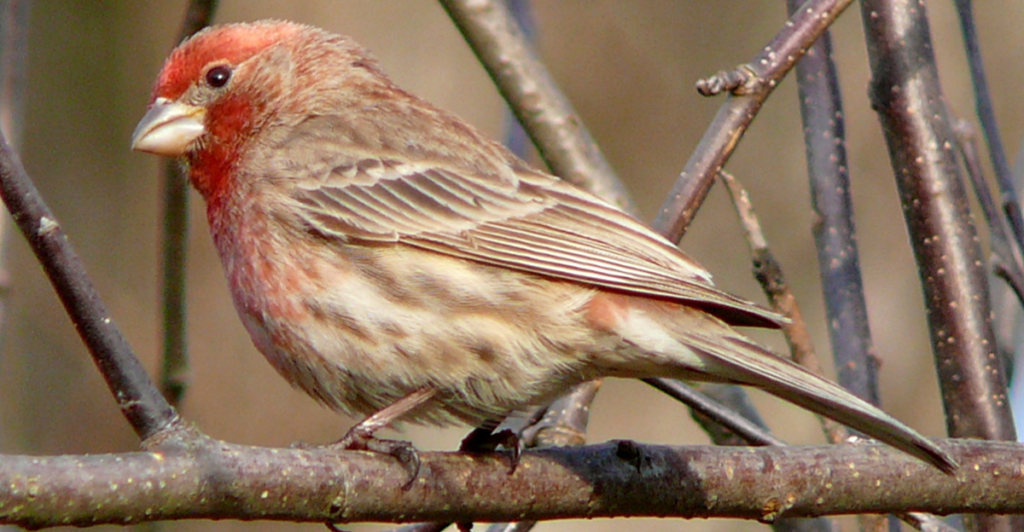
House Finches are adaptable birds often found in urban areas. Males have bright red chests, while females are more brownish with streaks. These social birds enjoy congregating at feeders, especially those filled with seeds and fruits.
Blue Jay
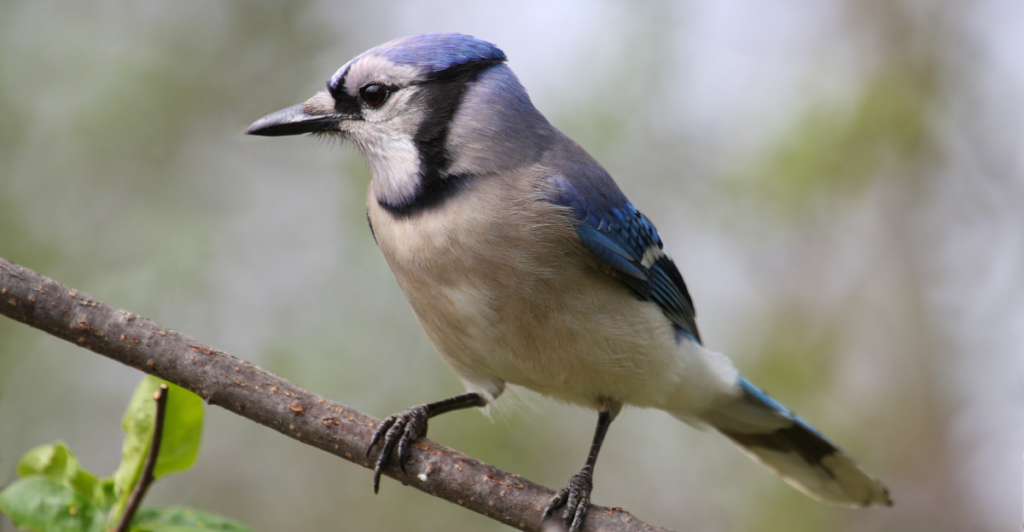
Blue Jays are known for their striking blue feathers and loud calls. They are intelligent birds that can mimic other species’ calls. Often spotted in groups, they can be seen raiding feeders or hiding food for later use during the winter months.
Snowy Owl
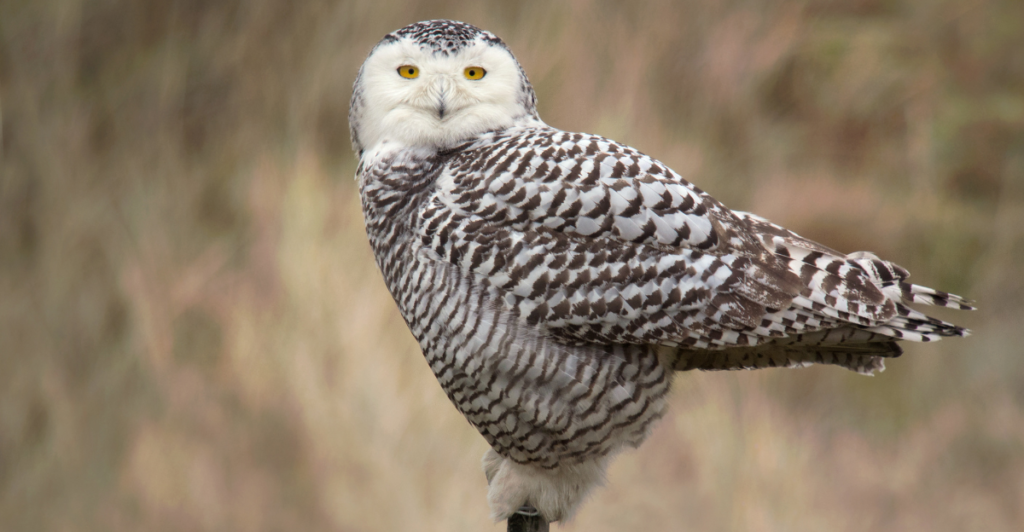
Snowy Owls are majestic birds that migrate south during winter months. With their striking white plumage, they blend well into snowy landscapes. These owls primarily hunt small mammals, making them an exciting sight during bird counts.
Evening Grosbeak
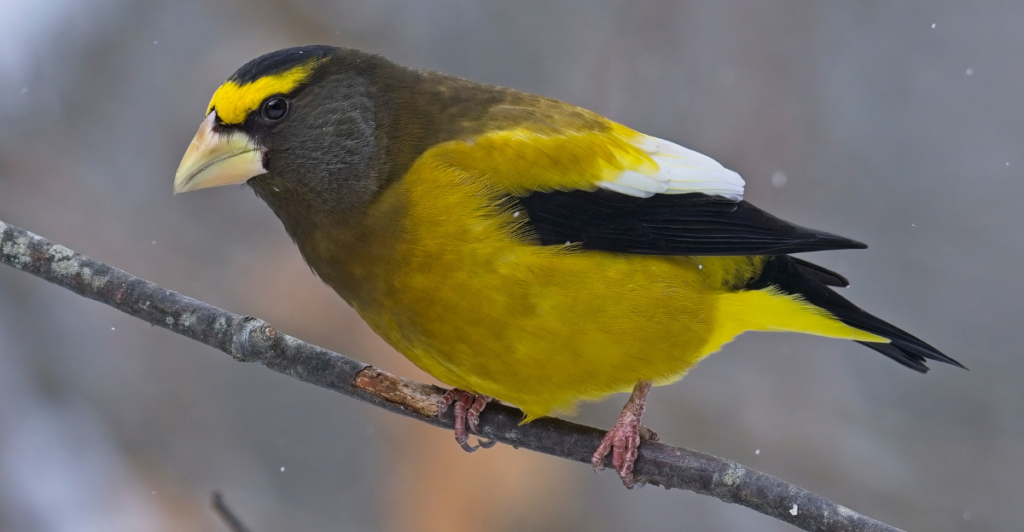
Evening Grosbeaks are large finches with bright yellow and black plumage. They are known to visit feeders during irruptive years when food is scarce in their northern habitats. Their cheerful songs add a lovely soundtrack to winter birding experiences.
Discover more of our trending stories and follow us to keep them appearing in your feed

10 Easy Ways To Stop A Charging Dog
10 Beloved Dog Breeds Now Facing Extinction
12 Fierce Birds That Patrol Rocky Horizons
12 Common Backyard Birds and What They Mean
Disclaimer: This article was researched and written with the assistance of an AI and edited/fact-checked by a human.
Stay connected with us for more stories like this! Follow us to get the latest updates or hit the Follow button at the top of this article, and let us know what you think by leaving your feedback below. We’d love to hear from you!







